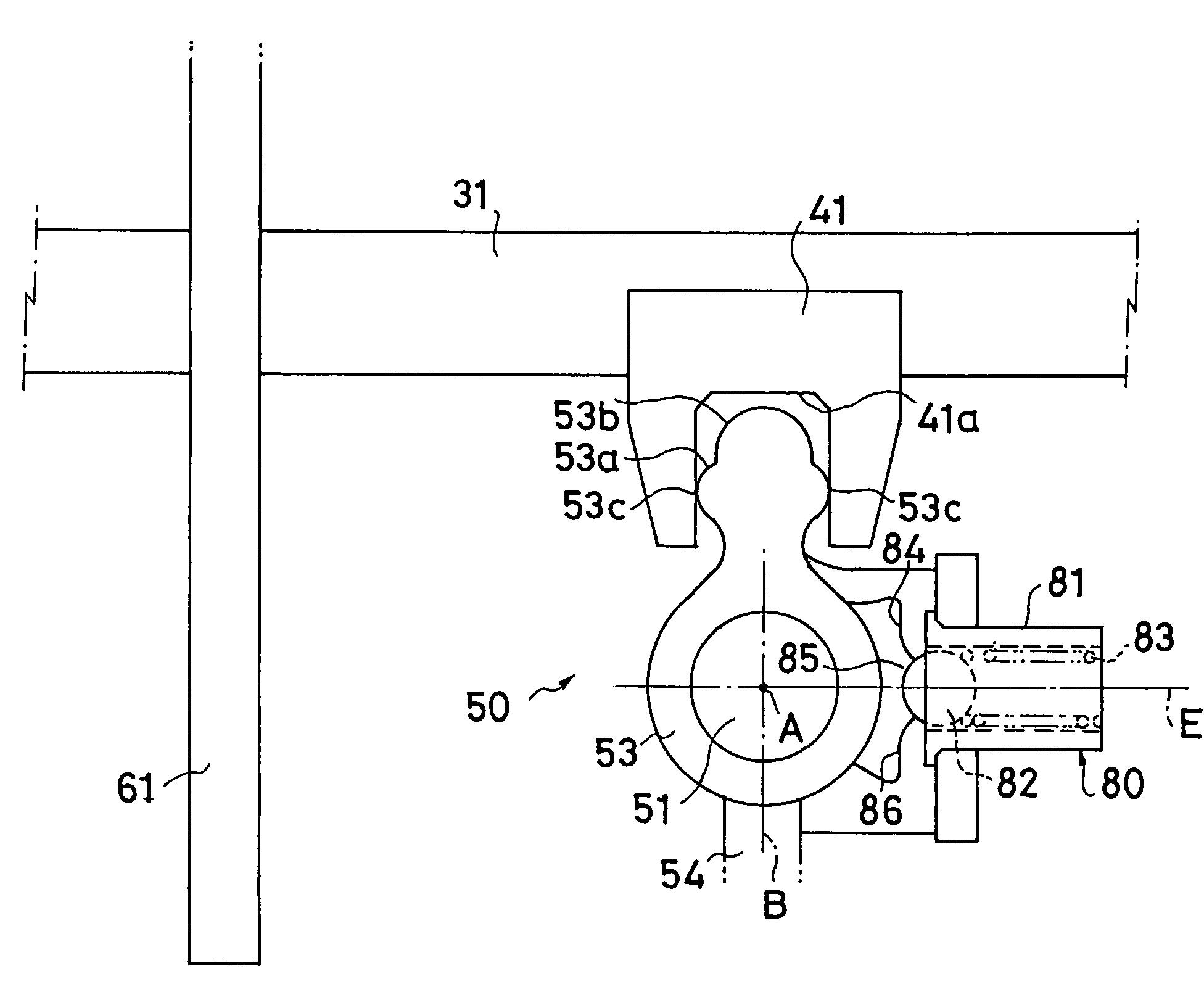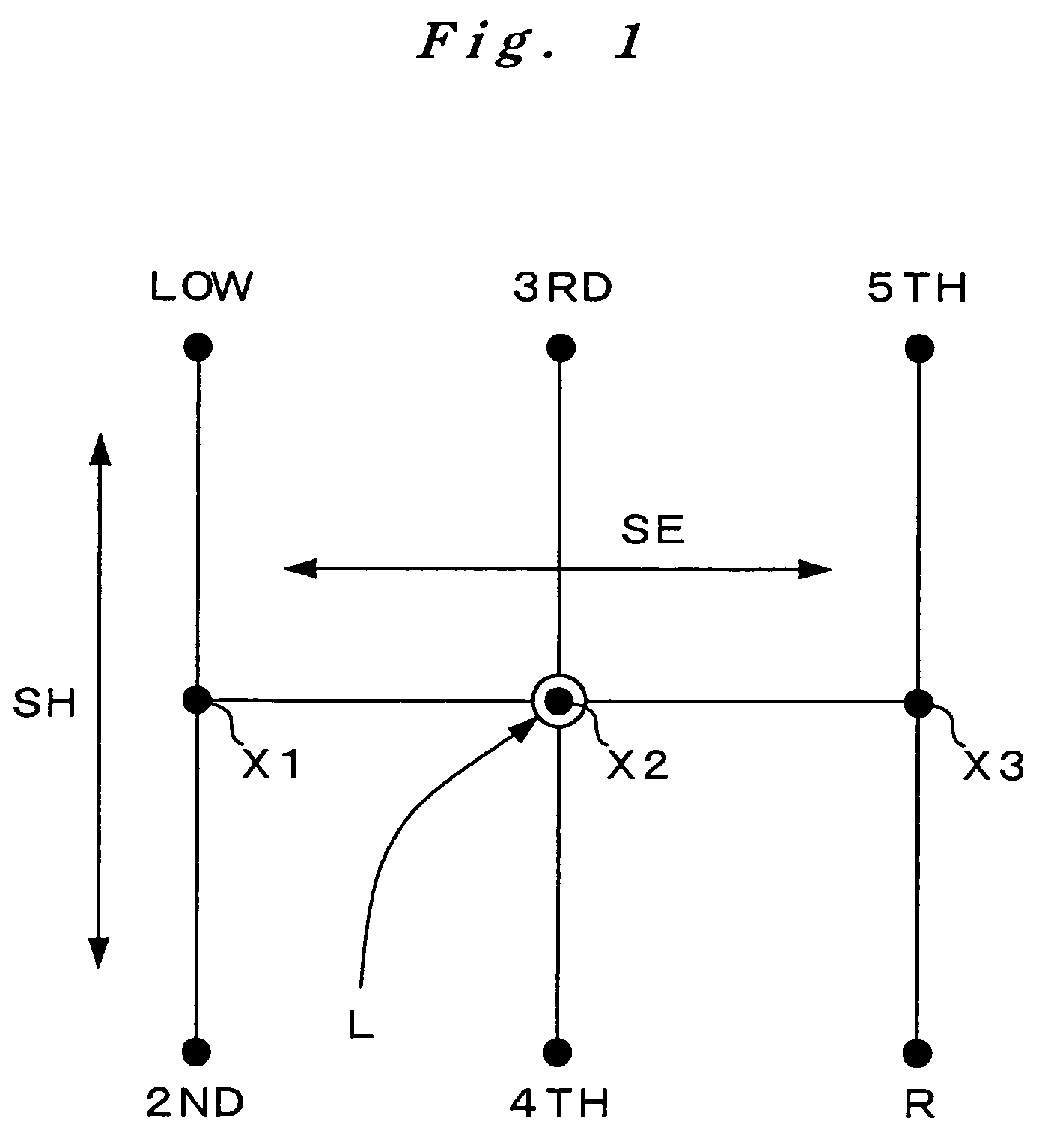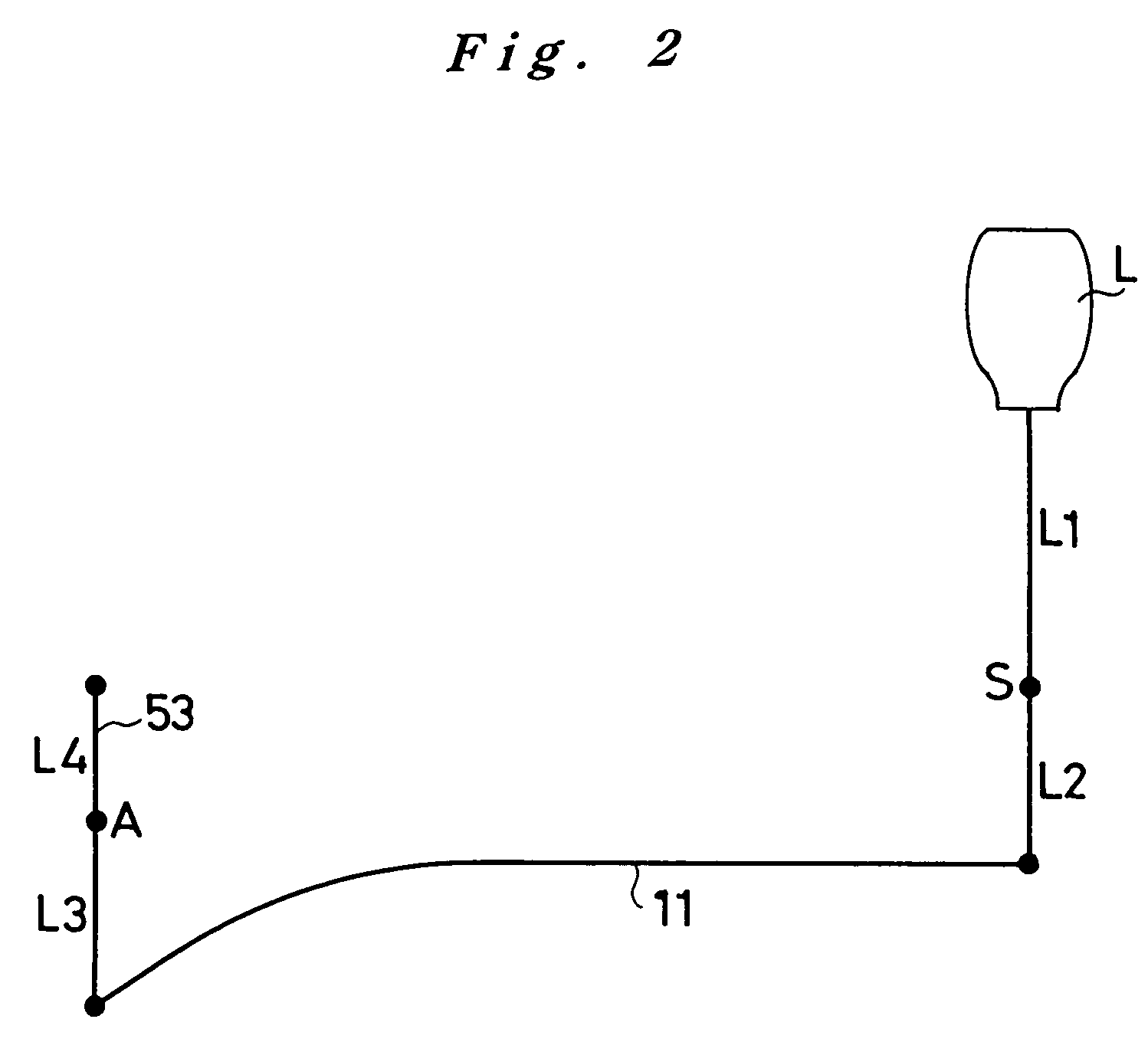Gear-shift device of manual transmission
a gear shifter and manual transmission technology, applied in the direction of mechanical control devices, manual control with single controlling member, instruments, etc., can solve the problems of limiting the increase of leverage that is effected, the stroke of the change lever, and the inability to achieve the desired effect, increase the installation space, and reduce the effect of the operation for
- Summary
- Abstract
- Description
- Claims
- Application Information
AI Technical Summary
Benefits of technology
Problems solved by technology
Method used
Image
Examples
Embodiment Construction
[0020]Now, a preferred embodiment of gear-shifting device for a manual transmission according to the present invention is described in reference to FIGS. 1˜7.
[0021]This manual transmission, when its Low, 2nd˜5th or Reverse clutch is selectively engaged, transmits the driving force of an engine selectively through a gear train with a different speed change ratio. For a gear shift, the driver manually operates the change-lever L provided at the driver seat. The following is a description of the mechanism to achieve a gear shift.
[0022]The change-lever L, which is used to select one of the 1st˜5th speed change ratios and reverse ratio (hereinafter referred to as “R speed”), is operated in the patterns shown in FIG. 1. If the change-lever L is operated in the direction indicated by SE in the drawing, then it can be positioned at one of the three selecting positions: 1st-2nd speed selecting position X1, 3rd-4th speed selecting position X2, and 5th-R speed selecting position X3. Then, whil...
PUM
 Login to View More
Login to View More Abstract
Description
Claims
Application Information
 Login to View More
Login to View More - R&D
- Intellectual Property
- Life Sciences
- Materials
- Tech Scout
- Unparalleled Data Quality
- Higher Quality Content
- 60% Fewer Hallucinations
Browse by: Latest US Patents, China's latest patents, Technical Efficacy Thesaurus, Application Domain, Technology Topic, Popular Technical Reports.
© 2025 PatSnap. All rights reserved.Legal|Privacy policy|Modern Slavery Act Transparency Statement|Sitemap|About US| Contact US: help@patsnap.com



